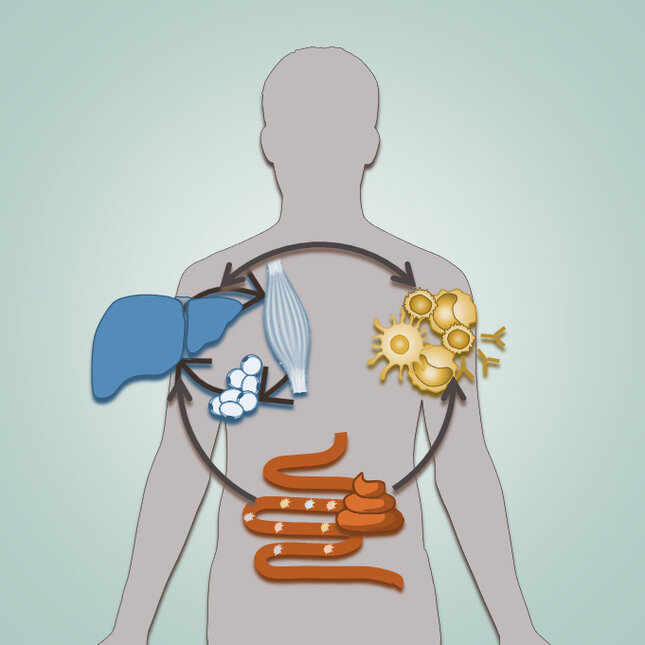
Human health is maintained by the delicate interplay between many tissues and organs. Poor dietary choices in overweight and obesity can disturb these systems, creating dysbiosis in our gut-microbiome which in-turn leads to dysregulation in metabolic tissues and induces chronic low-grade inflammation. Metabolic disturbances in this interplay give rise to a viscous cycle that ultimately leads to the development of multiple cardiometabolic diseases. We make use of mathematical models and machine learning to untangle the complex interactions that exist between diet, gut-microbiome, immune-function, and metabolic resilience. We use these models to better understand inter-individual variation in cardiometabolic disease risk with the aim of predicting personalized interventions to improve health across the whole body.
To answer these questions, we also focus on the development hybrid modelling approaches, combining machine learning with mechanistic models. By constraining the machine learning models with existing knowledge, in the form of mechanistic models, these hybrid models can be trained with the limited data available in human clinical trials. Moreover, by combining different modelling frameworks hybrid models can directly integrate different data types, combining static high-dimensional omics measurements (gut microbiome or inflammation markers) with time series data collected by wearable sensors to create personalized models of metabolic resilience.